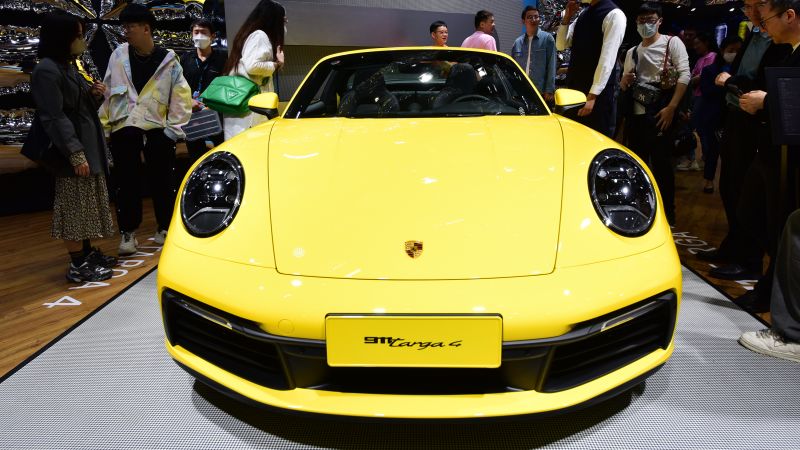Porsche is set to unveil one of the biggest changes to its signature model. A hybrid Porsche 911, with its gas engine assisted by at least one battery-powered electric motor, will officially be revealed in an online event on May 28.
The move is a major step in the evolution of one of the most recognizable sports cars in the world and helps support the acceptance of electric motors across most vehicles. Given their generally greater fuel efficiency without the sacrifice of power, hybrids have become commonplace in many types of vehicles. Porsche itself already sells plug-in hybrid models like the Cayenne e-Hybrid SUV and Panamera e-Hybrid four-door car but a hybrid 911 is another matter.
Few cars are as defined by a gasoline engine as the 911 and few automakers are as defined by one model as Porsche is by the 911. While Porsche sells far more SUVs than sports cars these days, the 911 remains the automaker’s core model. Even the Porsche Macan and Cayenne SUVs, with their rounded edges and sloped hoods, have nods in their designs to the 911.
Porsche also sells fully electric cars, the Taycan and the new Macan Electric SUV. But executives have said the 911 would be the last Porsche to become all-electric because its engineering is so unique and quintessential to its brand. By taking away the engine in the back — giving it the distinctive shape and rear-weighted driving feel — what makes it a 911? This new hybrid model will be the closest Porsche can get to an electric 911 without raising those sorts of philosophical questions.
The hybrid 911 has already undergone more than 3 million miles of testing on tracks and public roads in various climates, according to Porsche, but the more practical details won’t be announced until the end of this month. For instance, Porsche would not say whether the car will be a plug-in hybrid, as past and current Porsche hybrids have been. Porsche has favored plug-in hybrids because their more powerful batteries add to performance.
But we do know the hybrid 911 is clearly faster than the current purely gas-powered 911. A Porsche test driver was able to take the hybrid around Germany’s famed Nürburgring Nordschleife racetrack in 7 minutes and 17 seconds — 8.7 seconds faster than a comparable current-generation 911. The faster time indicates the hybrid 911 has greater power due to the addition of electric assistance. The Nürburgring is a twisty, challenging track so the faster time also indicates the car’s handling isn’t hindered by the added weight of batteries and electric motors.
“We have more grip, significantly more power, and the spontaneous response of the performance hybrid is a great advantage,” former racing driver and “brand ambassador” Jörg Bergmeister said in a statement.
The announcement of the new hybrid version comes about 60 years after Porsche launched the 911. The first 911 was unveiled in 1963 but didn’t go into production until 1964. It was a larger and more powerful addition to Porsche’s original model — the 356.
Both models, which were produced together for only a few years, had small back seats and engines mounted behind the rear wheels. The layout was similar to the Volkswagen Beetle, a car designed by Ferdinand Porsche Sr., the father of Ferdinand “Ferry” Porsche, who created the 356. Ferry’s son, Ferdinand “Butzi” Porsche, worked on the design of the 911, modeled after the 356’s teardrop shape. Its form, including the increasingly cramped backseats, has remained fundamentally the same since the original model.
Read the full article here




